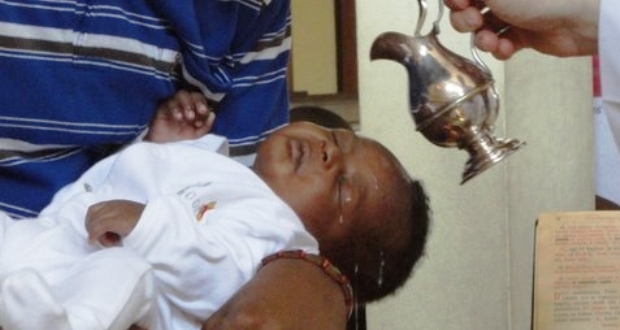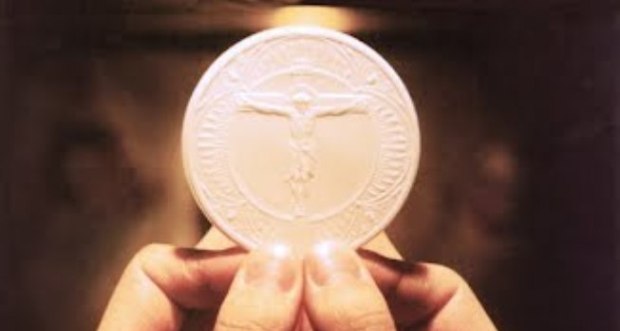The Bible, The Catholic Church and Infant Baptism

Why does the Catholic Church teach and carry out Infant baptism when this is not mentioned in the bible? In fact, the baptisms mentioned in the bible all seemed to mention adults.
First off, an understanding of what baptism is will help in answering this question and in quelling any misunderstanding about infant baptism. Baptism is the first act – for want of a better term – towards Christianity. In the Catholic Church, it is the first of three sacraments in initiation into the catholic faith. The other two sacraments being First Communion then Confirmation. By these three sacraments, the person receiving them is given full membership into the Body of Christ.
In baptism, the faithful are born anew and their sins are washed away. Baptism opens the door for the faithful to receive the free gift of divine life. All of us are born with the stain of original sin brought about as a result of the fall of Adam and Eve. Baptism washes away that stain. Everyone, regardless of our age, are in need of salvation, and this completely free gift is offered to us all through baptism.
[AMAZONPRODUCTS asin=”B0728C1Z77″]
Infant baptism is not a recent practice of the Catholic Church. Rather, it has been around from since the early Church when entire households were baptised. Acts chapter 16 bears testimony to this where Lydia and her household were baptised (Acts 16:15), and later on when the gaoler and his household too were baptised (Acts 16: 27 – 34).
Finally, just before Jesus ascended into heaven, he gave his disciples very specific instructions, “Go therefore, and make disciples of all nations, baptising them in the name of the Father and of the Son and of the Holy Spirit, teaching them to observe all that I have commanded you. (Matthew 28: 19 – 20)
Now while the bible does not explicitly say to baptise children, it certainly does not say not to baptise them. Additionally, when the bible speaks of “entire household” being baptised, and Jesus commanding his disciples to “go make disciples of all nations”, those collective nouns meant every one – man, woman and child. So there is nothing wrong with infant baptism. Why should anyone want to deny another person such a priceless free gift because they are “too young to understand”. With that type of reasoning, persons who are challenged may be deemed as unfit for baptism because of their limited understanding.





